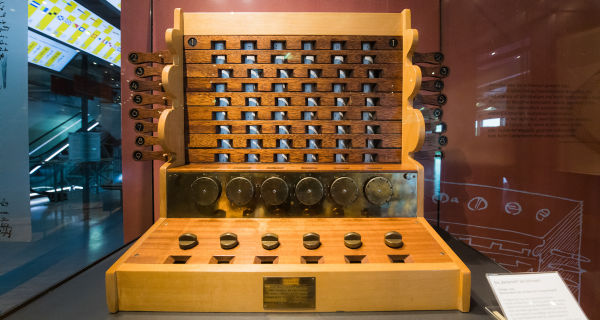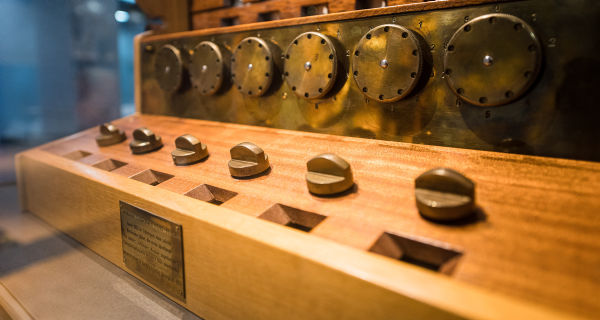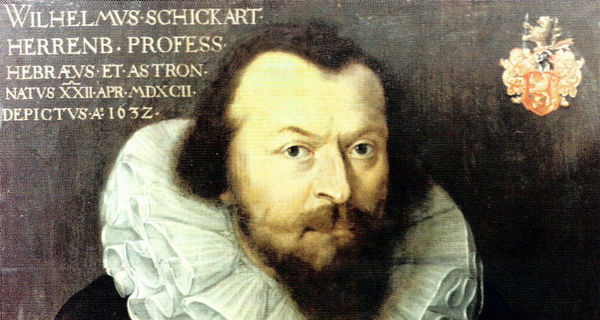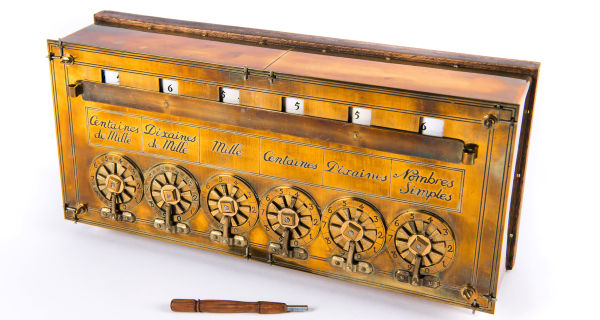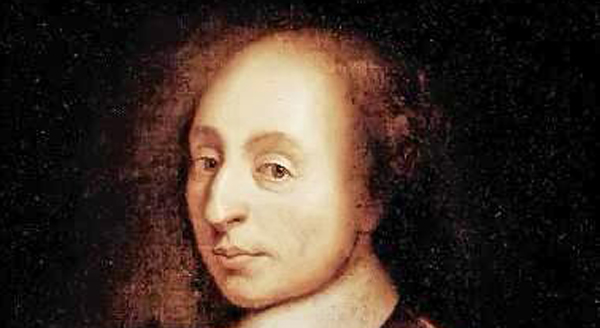Wilhelm Schickard and Blaise Pascal, two universal scholars of the 17th century, developed the first calculating machines independently of each other.
Wilhelm Schickard
In addition to his studies of classical languages and land surveys of Swabia in southwest Germany, the theologian Wilhelm Schickard, professor of Hebrew at Tübingen university, dealt intensively with mathematics and astronomy. To solve and represent problems in these areas, he conceived models that he recorded in detailed writings and sketches. These included "astronomical calculating sticks" (i.e. astronomical tables on Napier's bone-like sticks) in about 1630 and a hand planetarium in about 1632. His "calculating clock" of 1623 mastered the four fundamental operations of arithmetic and had a built-in memory: initially, he had it constructed for his own use.
Schickard, who never left southern Germany, engaged in lengthy correspondence with other scholars. Johannes Kepler was one who showed interest in this aid for his complex planetary orbit calculations. The second calculating machine, however, was never built since Schickard died shortly afterwards of the Plague.
Blaise Pascal
Blaise Pascal, who suffered from poor health throughout his life and died at the age of 39, dealt both with problems of Christian philosophy and with pure scientific and mathematical problems, which he recorded in numerous writings. At the age of 19, he began to design a calculating machine for his father, a tax collector, who had ensured that his son got an excellent education. Pascal had fifty of his calculating machines built, nine of which are still in existence.
He went on improving his calculating machines, known as Pascalines, with the result that numerous variants were built over many decades. Hoping to become better known and to receive support, he gave away the first Pascalines to prominent people - notably the French Chancellor and Queen Christine of Sweden.
Pascal, who frequented the French court for a time, was inspired by the games of chance popular there to lay the foundations of a theory of probability.
